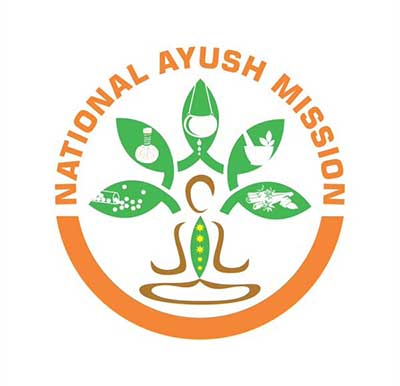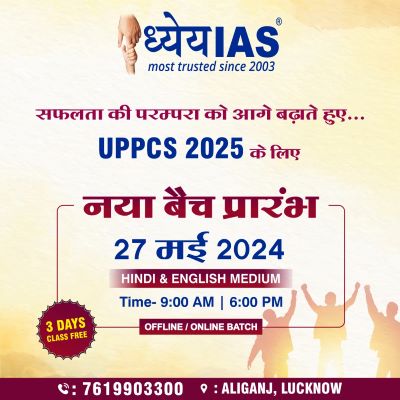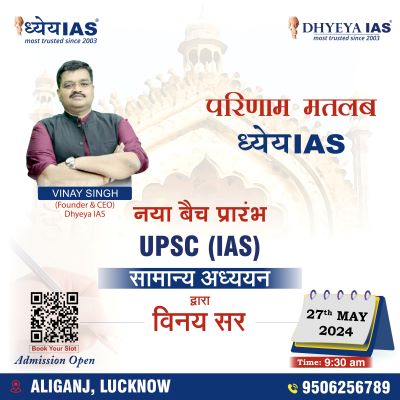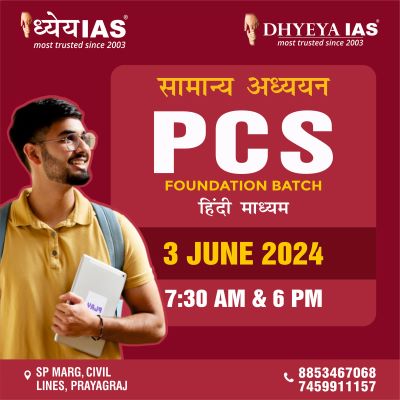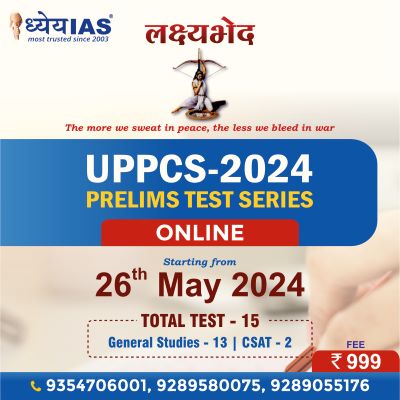Date : 07/07/2023
Relevance – GS Paper 3 – Health and Related issues
Keywords – Ayush, Universal Health Coverage, SDG Goals
Context:
The Ministry of Ayush in India recognizes the significance of evidence-based practices and has undertaken various initiatives to foster scientific research, validation, and integration of Ayush into the mainstream healthcare framework.
What is Ayush –
- Ayush, which stands for traditional and non-conventional systems of healthcare and healing, encompasses a diverse range of practices such as Ayurveda, Yoga, Naturopathy, Unani, Siddha, Sowa-Rigpa, and Homoeopathy.
- These ancient wisdom-based systems offer a comprehensive approach to healthcare, focusing on holistic well-being by balancing the body, mind, and spirit through personalized treatments, exercise, diet, lifestyle modifications, therapeutic drugs, and traditional healing practices.
Research and Development Initiatives of the Ministry of Ayush
The Ministry of Ayush has established five Research Councils as autonomous institutes dedicated to conducting research in Ayurveda, Homoeopathy, Unani, Siddha, Yoga, and Naturopathy. These Research Councils engage in diverse research activities such as medicinal plant research, drug standardization, pharmacological research, clinical research, literary research, and outreach programs. They also provide financial support for research projects through various schemes and collaborate with researchers, practitioners, and experts from different disciplines to develop integrated healthcare models that combine the strengths of Ayush and modern medicine. Additionally, the Ministry of Ayush is actively involved in establishing and implementing quality standards for Ayush products, ensuring their safety, efficacy, and standardization.
Integration of Ayush with Modern Healthcare Practices:
Recognizing the importance of integrating Ayush systems with modern healthcare practices, the Ministry of Ayush collaborates with mainstream healthcare providers to promote interdisciplinary dialogue and research on integrative approaches. This integration aims to enhance the accessibility, affordability, and acceptability of Ayush healthcare services within a pluralistic system. The National Health Policy of 2017 emphasizes the mainstreaming of Ayush in the National Health Mission, research, and education, highlighting the need for a holistic and integrative healthcare system. The Ministry of Ayush also supports the establishment of the WHO Global Centre for Traditional Medicine, which aims to integrate traditional medicine into mainstream healthcare, ensure evidence-based practices, and improve the overall quality and accessibility of traditional medicine services.
Promoting Research and Dissemination of Findings:
The Ministry of Ayush actively promotes research in Ayush systems through peer-reviewed journals, publications, and the Ayush Research Portal. This portal serves as a platform for disseminating evidence-based research data on Ayush systems at a global level, facilitating the exchange of knowledge and encouraging further research collaborations. The ministry also organizes training programs, workshops, and conferences to enhance the capacity of researchers, clinicians, and stakeholders in the Ayush sector.
Pragmatic Model of Research in Ayush:
Ayush research follows a pragmatic model that combines traditional knowledge with modern scientific methods. It aims to explore and validate the traditional knowledge accumulated over centuries, using rigorous scientific methodologies such as clinical trials, observational studies, and systematic reviews. By addressing unmet healthcare needs and incorporating lifestyle modifications, Ayush research strives to provide innovative solutions and complementary therapies. The focus is on predictive, preventive, and personalized medicine, taking into account the multidimensional aspects of healthcare challenges.
Ayush in Achieving Universal Health Coverage and SDG Goals:
The Ayush healthcare system aligns with the World Health Organization's strategic objectives for achieving universal health coverage, emphasizing accessibility, affordability, availability, and acceptability of healthcare services. Ayush plays a significant role in achieving Sustainable Development Goal 3 (Good Health and Well-being) and Goal 10 (Reduced Inequalities) through initiatives such as the National AYUSH Mission, integrated health programs, and targeted efforts to address health inequities and out-of-pocket expenditures. Ayush also supports Sustainable Development Goal 11 (Sustainable Cities and Communities) by promoting partnerships between different healthcare systems and fostering knowledge and expertise exchange. The emerging concept of "One World One Health" further highlights the importance of collaboration and coordination among sectors and stakeholders to address global health challenges.
Conclusion:
Ayush, as the science of life, encompasses traditional and non-conventional systems of healthcare and healing that offer a holistic approach to health and well-being. Through personalized medicine, preventive measures, integration with modern healthcare practices, evidence-based research, and the preservation of traditional knowledge, Ayush contributes to comprehensive and patient-centered healthcare. The Ministry of Ayush's research and development initiatives, including its focus on quality standards, research funding, capacity building, and integration efforts, aim to strengthen the role of Ayush in the healthcare framework. By embracing Ayush principles and practices, India and other countries can strive towards achieving the goal of "Health for All" and contribute to the global sustainable development agenda.
Probable Questions for UPSC Mains Examination –
- Discuss the role of the Ministry of Ayush in promoting evidence-based research, integration with modern healthcare practices, and achieving universal health coverage. How does Ayush contribute to the Sustainable Development Goals? (10 Marks, 150 Words)
- Analyze the research and development initiatives of the Ministry of Ayush in India and their significance in bridging the gap between traditional knowledge and contemporary scientific standards. Discuss the challenges and opportunities in integrating Ayush with modern healthcare practices. (15 Marks, 250 Words)
Source – The Hindu

